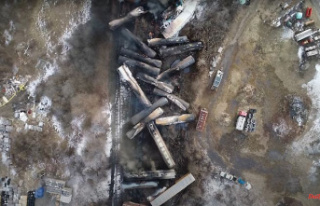Breathe a sigh of relief in German industry: the number of existing orders is slowly declining. This is due to supply chains slowly getting back on track and fewer new orders due to the energy crisis. However, the companies are not running out of orders anytime soon.
The backlog of orders in German industry is gradually clearing up as supply chains function better again. The number of orders fell in December by 0.4 percent compared to the previous month and thus for the second time in a row, as reported by the Federal Statistical Office. However, it rose slightly over the course of 2022 and at the end of the year reached a volume that was 1.2 percent higher than in December 2021.
"Thus, the development normalized somewhat in the past year," explained the statisticians. Economists see it that way too. "For a long time, orders from German industry increased faster than they could produce," said DekaBank economist Andreas Scheuerle.
The surprisingly strong demand in the post-corona period met with supply chain problems. However, under the impression of the global economic slowdown triggered by the energy crisis, demand for German products weakened, while at the same time supply chain problems eased noticeably. "The result is a gradual melting of the order backlog in industry," said Scheuerle.
"Nevertheless, the order cushion on which German industry is sitting is still comfortable and significantly thicker than in the year before the Corona outbreak." This is reflected in the extraordinary resilience of German industry, where up to now almost exclusively the energy-intensive sectors have had to significantly reduce their production.
The order backlog is currently still 30.8 percent higher than in December 2019, which was not yet affected by the corona pandemic. Complaints from industry about material shortages have recently continued to decrease: According to an IFO survey in January, only 48.4 percent of companies reported bottlenecks. In December it was still 50.7 percent.
The scope of the order backlog increased slightly towards the end of the year. It was 7.4 months, down from 7.3 months in November. The range indicates how many months the companies would theoretically have to produce without new orders if the turnover remained the same in order to process the existing orders. For manufacturers of capital goods such as cars and machines, the range is above average at 10.6 months. Experts assume that the still thick order cushion should support production in the coming months. New business, on the other hand, is likely to be mixed in view of the sluggish global economy.












